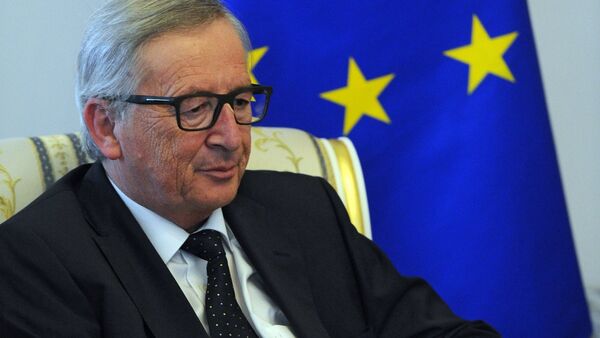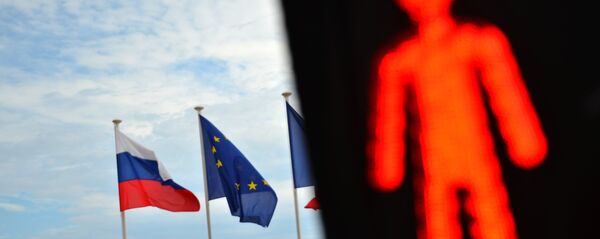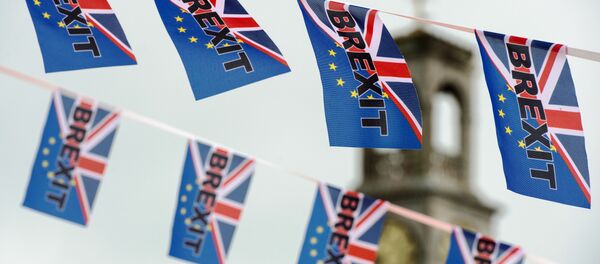Although this can be described as a political success for Moscow, conjecture regarding the abolition of anti-Russian sanctions remains irrelevant, the Russian news website Gazeta.ru quoted several sources as saying.
For example, the Financial Times pointed out that Russian President Vladimir Putin is seeking to use the SPIEF "to celebrate the return of European neighbors and western investors after two grueling years of sanctions and hostility."
"Russian officials hope this year's forum marks a turnaround in Russia's relations with Europe. The organizers say they also expect some of the chief executives of big multinational companies, who stayed away in 2014 and 2015, will come back this year," the newspaper said.
The Financial Times also noted the probable extension of the anti-Russian sanctions, but said that "the mood is shifting and the staying power of the EU is increasingly uncertain."
"If violence in eastern Ukraine does not flare up later this year, diplomats expect a more meaningful review of policy, which would begin to lift or loosen some measures," the newspaper added.
For its part, the French newspaper Le Monde touted Juncker's visit to the 2016 SPIEF as a "political success". The newspaper also referred to the ever-increasing activity of those who call for lifting the sanctions.
The Wall Street Journal in turn noted that against the backdrop of tense relations between Moscow and Washington, Juncker's visit "comes at a delicate moment," given that the EU is due to decide on the extension of economic sanctions against Russia during its summit in late June.
"European officials say Russia will almost certainly stay in the penalty box, but Juncker said last month he hoped to use the trip to build bridges on economic issues," The Wall Street Journal said.
In addition, the newspaper recalled that relations between Putin and Juncker "stretch back almost two decades from when he was Luxembourg's longtime Prime Minister."
Since 2014, the European Union, the United States and several allies have imposed several rounds of sanctions against Russia over accusations of the Kremlin's alleged interference in the Ukrainian conflict — a claim that Moscow has repeatedly denied.
In response, Russia introduced a food embargo in August 2014 on products originating from states that had imposed the restrictions.




